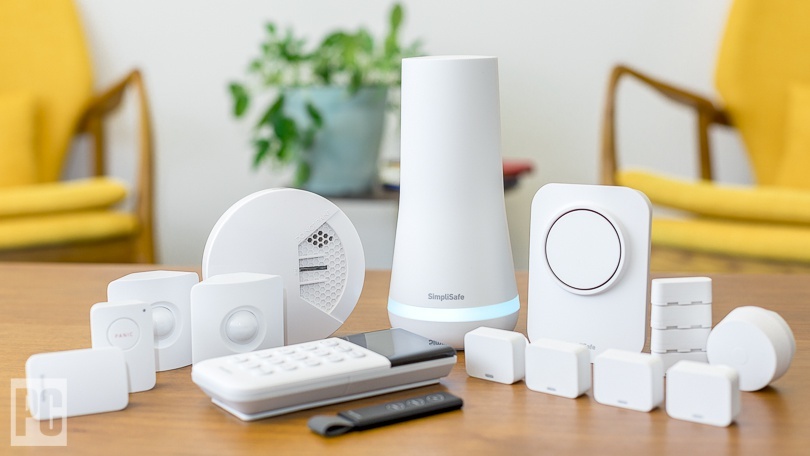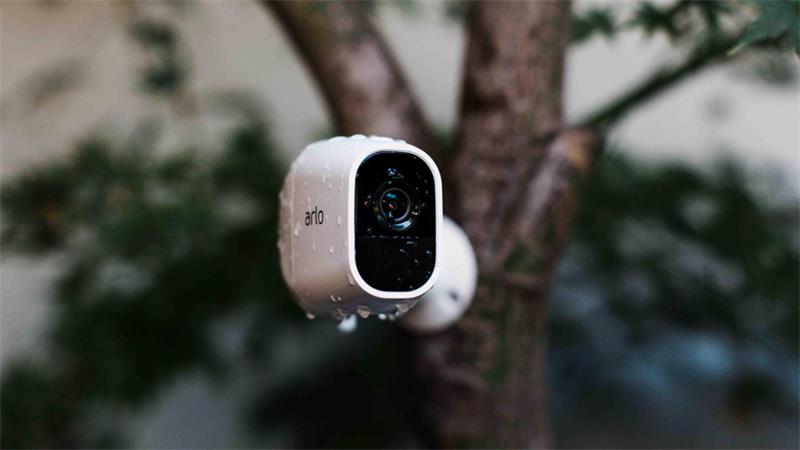Contents
- 1 The Importance of Fire Alarms in a Security System
- 2 What are fire alarms?
- 3 Types of Fire Alarms
- 4 Benefits of Having Fire Alarms in a Security System
- 5 Choosing the Right Fire Alarm for Your Security System
- 6 Maintenance and Testing: Keeping Your Fire Alarm System in Tip-Top Shape
- 7 Common Misconceptions about Fire Alarms
- 8 Addressing Common Myths about Fire Alarms
- 9 Conclusion
The Importance of Fire Alarms in a Security System
As much as we hope to never experience a fire, it’s crucial to prepare for the possibility of one. When it comes to protecting your property and keeping your loved ones safe, having fire alarms installed in your security system is an absolute necessity. Fire alarms are designed to detect fires as early as possible and alert the occupants of a building, giving them enough time to evacuate safely.
They are an essential component of any comprehensive security system because they help minimize property damage and prevent injuries or fatalities. Not only do fire alarms protect people and buildings from fire damage but they also give peace of mind knowing that you have taken precautions against an emergency.
Installing a fire alarm system not only protects your property but also demonstrates responsible ownership. In fact, many insurance providers offer discounts on homeowner’s insurance if you have a functional and well-maintained fire alarm system installed.
This is because it demonstrates that you are taking measures to prevent potential damage or loss, making you less of risk for insurance companies. While many consider smoke detectors the most important type of fire alarm, there are actually several types available depending on various factors such as building size, occupancy type, and budget.
Each type has its own unique benefits and features that make them suitable for different situations. In this article, we will explore the different types of fire alarms available on the market today and discuss why having them installed in your security system is essential for keeping yourself and others protected from potential disaster.
What are fire alarms?
When we talk about fire alarms, we’re referring to devices that are designed to detect the presence of smoke, heat or flames. They are a crucial component of any security system because they can provide an early warning sign in the event of a fire. The main purpose of a fire alarm is to notify people about an active fire and allow them enough time to evacuate the building before it’s too late.
Fire alarms work by detecting changes in temperature or air quality caused by the presence of smoke or flames. Once these changes are detected, an alarm will sound, alerting everyone inside the building that there is a potential emergency.
There are several types of fire alarms available on the market today, each with its own strengths and weaknesses in terms of detection capabilities. Some common types include ionization smoke detectors, photoelectric smoke detectors, heat detectors, and flame detectors.
Ionization smoke detectors work by using ionizing radiation to detect particles produced by flames and combustion. These particles can then trigger an alarm if they reach a certain threshold within the detector.
Photoelectric smoke detectors use light sensors to detect tiny particles produced by smoldering fires before they turn into full-blown flames. These types of detectors have been shown to be more effective at detecting slow-burning fires.
Heat detectors work differently than smoke detectors; instead of relying on detecting particles in the air caused by combustion, they respond directly to changes in temperature caused by nearby fires. Flame detectors use special sensors that can distinguish between normal light sources and actual flames.
They work well in situations where traditional smoke or heat detection methods may not be effective such as outdoor environments where dust or debris may trigger false alarms. Fire alarms play an essential role when it comes to protecting people against fires.
By detecting signs of danger early on and alerting occupants before it’s too late, fire alarms can help save lives and minimize property damage. With many different types of fire alarms available, it’s important to carefully consider your options and choose the one that best suits the needs of your building or property.
Types of Fire Alarms
No security system is complete without a fire alarm. A fire alarm system is an essential component of any building’s safety plan. Fire alarms are designed to detect signs of a potential fire outbreak and alert the occupants so that they can evacuate as soon as possible.
There are three main types of fire alarms: smoke detectors, heat detectors, and flame detectors. Each type has its own unique features and benefits, making them suitable for different situations.
Smoke Detectors
Smoke detectors are the most common type of fire alarm. They work by detecting smoke particles in the air caused by combustion. Smoke detectors come in two varieties: ionization and photoelectric.
Ionization smoke detectors use a small amount of radioactive material to ionize air molecules, creating a flow of electric current between two electrodes. Smoke particles passing through this current disrupt the flow, setting off the alarm.
Photoelectric smoke detectors shine a beam of light into the detection chamber. When smoke enters this chamber it scatters the light towards a sensor which activates an alarm.
Heat Detectors
Heat detectors work by detecting changes in temperature caused by fires. They come in two kinds: fixed temperature and rate-of-rise. Fixed-temperature heat detectors activate when exposed to a certain degree of heat or above it.
Rate-of-rise heat detector activates when there is an abrupt change in temperature that exceeds its safety range limit within seconds. Heat Detectors are also ideal for areas where there is regular steam or dust presence, such as kitchens or storage areas.
Flame Detectors
While not very common, Flame Detectors serve unique purpose sometimes needed for industrial settings with specialized applications that present distinct hazards like combustible gases or liquids. Flame Detector operates using ultraviolet (UV) or infrared sensors to detect flames from burning materials remotely from far distances. Each type of fire alarm system plays a vital role in detecting and warning occupants of a potential fire outbreak.
Understanding the differences between the three types can help you choose which one to install based on your specific needs. Consult with an expert installer to determine the most suitable type for your building’s safety needs.
Benefits of Having Fire Alarms in a Security System
Early Detection and Warning of Fires
One of the most significant benefits of having fire alarms in your security system is early detection and warning of fires. Fires can start quickly and spread even faster, so early detection is crucial to limit damage and prevent loss of life. Fire alarms are designed to detect smoke, heat, or flames, depending on the type of alarm you have installed.
Once a fire alarm detects an anomaly, it triggers a loud warning alarm that alerts everyone in the building to evacuate immediately. If there is a central monitoring system installed along with your fire alarms, the authorities are notified automatically for quicker response time.
Minimizing Damage to Property and Assets
Fires can cause significant property damage and destroy valuable assets within minutes. However, with the installation of fire alarms in your security system, you can minimize damage caused by fires.
Fire alarms act as an early warning system that allows firefighting services to respond quickly before the fire spreads wildly out of control. This quick response time significantly reduces property damage and helps salvage as many assets as possible.
Saving Lives
The most critical benefit provided by fire alarms in a security system is saving lives. A properly installed smoke detector or other types of fire alarms provide an early warning about potential fires that give occupants enough time to evacuate safely.
Firefighters often mention how they would have saved more lives if people had just had working smoke detectors installed in their homes or businesses. With working smoke detectors that are part of a comprehensive security system you will be providing yourself with peace-of-mind knowing that you take every precaution necessary.
Peace-of-Mind
Having proper fire detection devices provides peace-of-mind knowing that everyone inside your property is safe from harm’s way should anything happen. Fire alarms provide an extra layer of security that is not found in other security systems. The knowledge that you are doing your part to protect your family, employees and assets can provide a sense of relief knowing that you have taken every necessary precaution available.
Compliance with Local Regulations
Having fire alarms installed in your property is often required by local regulations. Many cities and states require property owners to have working smoke detectors installed in their properties. Failing to comply with these regulations could lead to hefty fines or legal penalties.
Having fire alarms incorporated into your security system provides several benefits such as early detection and warning of fires, minimizing damage to property and assets, saving lives, peace-of-mind and compliance with local regulations. Fire alarms should be considered essential components of any comprehensive security system as they play a critical role in protecting everything you hold dear.
Choosing the Right Fire Alarm for Your Security System
Now that you know what fire alarms are and their benefits, it’s important to choose the right type for your specific security system needs. There are several factors to consider when selecting a fire alarm, including building size, occupancy type, and budget.
Building Size
The size of your building will have a significant impact on the type of fire alarm you need. For larger buildings, you may require a more complex system with multiple sensors and detectors throughout the structure. In contrast, smaller buildings may only need one or two simple detectors.
You should also consider the layout of your building when choosing a fire alarm system. Buildings with many rooms or different levels may require more sensors to ensure full coverage.
Occupancy Type
The type of occupancy in your building is another critical factor in selecting a fire alarm system. Different types of buildings have varying requirements for safety regulations and codes.
For example, hotels and hospitals have different needs than office buildings or retail spaces. It’s essential to understand these requirements so that you can select the right fire alarm system for your particular space.
Budget
Your budget will also play a role in determining which fire alarm system is best for you. While there are many options available at different price points, it’s important not to skimp on quality when it comes to safety equipment. You should do some research into different brands and models to find one that fits within your budget while still meeting all necessary safety regulations and providing adequate protection for your building and occupants.
Add-On Features
In addition to basic functionality, many modern fire alarms come with additional features such as remote monitoring or notification systems that can alert emergency services automatically. While these features may come at an additional cost, they can provide added peace of mind and may be worth the investment depending on the specific needs of your building or business.
Consultation with Experts
It’s always a good idea to consult with experts when selecting a fire alarm system for your security plan. Professional fire safety technicians can assess your building’s unique needs and help you choose the system that provides the best protection for your occupants and assets.
Investing in a high-quality fire alarm system is essential for any comprehensive security plan. By considering factors such as building size, occupancy type, budget, add-on features, and consulting with experts, you can choose the right fire alarm system that meets all necessary safety regulations while effectively protecting your building and its occupants.
Maintenance and Testing: Keeping Your Fire Alarm System in Tip-Top Shape
A fire alarm system is only effective if it is properly maintained and tested on a regular basis. Neglecting your fire alarm system can lead to false alarms, missed detections, and, worst of all, a failure to alert occupants in the event of a real emergency. Here are some tips on how to keep your fire alarm system functioning properly:
The Importance of Regular Maintenance and Testing
Regular maintenance and testing are crucial for ensuring that your fire alarm system is functioning properly when you need it most. The National Fire Protection Association (NFPA) recommends that commercial buildings have their systems inspected quarterly by a qualified technician. Residential buildings should have their systems inspected annually.
During these inspections, technicians will check the wiring, power supply, control panels, sensors, and other components of the system to ensure that they are working properly. They will also test the alarms to make sure that they can be heard throughout the building.
How to Properly Maintain Your Fire Alarm System
In addition to regular inspections by a qualified technician, there are several things that you can do to maintain your fire alarm system: – Keep the area around smoke detectors clear of dust and debris. – Check batteries regularly (if applicable) and replace them as needed.
– Test smoke detectors once a month using canned smoke or another approved testing method. – Replace outdated or malfunctioning detectors as soon as possible.
How to Properly Test Your Fire Alarm System
Testing your fire alarm system regularly is important for ensuring that it is working properly when you need it most. Here are some tips for conducting tests:
1. Notify occupants: Before testing alarms, make sure that everyone in the building knows about it ahead of time so they are not caught off guard by loud noises.
2. Select a time when the building is relatively empty: It’s best to perform testing outside of normal business hours or when most residents are out of the building to avoid disrupting their daily routines.
3. Test all components: Test all components of the system, including smoke detectors, pull stations, and horns/strobes.
4. Document results: Keep a record of your testing results in case any issues arise in the future.
Conclusion
Maintenance and testing are critical for keeping your fire alarm system functioning properly. By following these tips and recommendations from qualified technicians, you can ensure that your system is ready to alert occupants in the event of an emergency. Remember, a little bit of maintenance now can save lives later!
Common Misconceptions about Fire Alarms
Fire alarms are an essential part of any security system, however, there are still some common misconceptions about their effectiveness or necessity. Let’s explore some of these myths and debunk them one by one.
Myth: Smoke detectors don’t work well in the kitchen
Many people believe that a smoke detector in the kitchen is ineffective because it can go off when cooking or during minor accidents like burnt toast. While this is true to some extent, modern smoke detectors have different sensitivity settings that can be adjusted to minimize false alarms.
It’s also important to remember that fires can start in the kitchen and spread quickly, making early detection crucial for preventing a disaster. Therefore, having a smoke detector in the kitchen is essential for overall protection.
Myth: Fire alarms are too expensive
While it’s true that fire alarm systems can be pricey, they’re worth every penny when you consider the potential cost of property damage and loss of life without them. Additionally, many insurance companies offer discounts for properties with a fire alarm system installed.
There are also cost-effective options available for those on a budget such as standalone battery-operated smoke detectors. It’s crucial not to let cost hold you back from protecting yourself and your property from potential fires.
Addressing Common Myths about Fire Alarms
Now that we’ve addressed some common myths about fire alarms let’s focus on why they’re necessary and effective.
Early Detection Saves Lives
The primary benefit of fire alarms is their ability to detect fires early on. When a fire breaks out, every second counts when it comes to evacuating the building safely. A properly installed and maintained fire alarm system ensures everyone inside has enough time to escape before it’s too late.
Without early detection, occupants may easily become trapped and unable to escape the fire. Therefore, investing in a reliable fire alarm system can be the difference between life and death.
Minimizing Property Damage
A fire alarm system not only saves lives, but it also minimizes property damage. Early detection ensures that fires are extinguished before they can spread throughout the building and cause significant damage. This means less downtime for commercial properties and reduced repair costs for homeowners.
Peace of Mind
Having a functioning fire alarm system provides peace of mind to property owners, managers, and occupants. Knowing that there’s a reliable warning system in place gives everyone confidence that their safety is being taken seriously. While there may be some common misconceptions about fire alarms, they are essential for any security system.
Properly maintaining them is crucial to ensuring their effectiveness in protecting people and property from potential fires. So don’t let these myths hold you back from investing in this essential safety measure.
Conclusion
Fire alarms play a crucial role in any security system. As we have seen, they provide an early warning system that can help prevent disaster by alerting people to the presence of a fire and allowing them to take action before it spreads. Whether you are protecting a commercial property or your family home, incorporating a fire alarm system into your security plan is essential.
The benefits of having a fire alarm system are numerous. They can minimize damage to property and assets, save lives, and provide peace of mind.
With so many different types of fire alarms available on the market today, it is important to choose the one that best fits your needs. Consider factors such as building size, occupancy type, and budget when making your decision.
Regular maintenance and testing are also critical components of any successful fire alarm system. These tasks should be performed at regular intervals to ensure that the system is functioning correctly and will be reliable in an emergency situation.
It is important to address common misconceptions about fire alarms so that everyone understands their importance. Some people believe that smoke detectors don’t work because they have experienced false alarms or heard about instances where they did not detect smoke in time.
However, these instances are rare and do not represent the effectiveness of modern fire alarm systems. Overall, we hope this article has convinced you of the importance of incorporating fire alarms into your security system.
By doing so, you can protect what matters most while ensuring safety for yourself and those around you. Remember: prevention is always better than cure!










